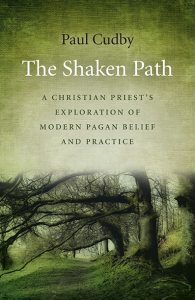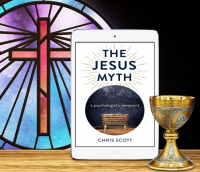
 Tomorrow the church remembers the post-Easter encounter Jesus had with two of his disciples on the road to Emmaus, and how they didn't recognise him until that moment when he broke
bread with them. (The whole reading is at the end if you want to read it.)
Tomorrow the church remembers the post-Easter encounter Jesus had with two of his disciples on the road to Emmaus, and how they didn't recognise him until that moment when he broke
bread with them. (The whole reading is at the end if you want to read it.)
This caught my imagination because I think that brokenness is at the heart of the Gospel, and it's highlighted by how Jesus had been made known to the disciples in the breaking of the bread. We often miss the importance of breaking bread. It’s become rather a simple saying, as in we meet together to break bread. But why ‘Breaking’ bread? Why not simply 'Eating bread', or 'Sharing bread'? You may recall the words that Jesus said at the last supper, ‘This is my body, broken for you.’ Is it not a rather powerful comment then that when we break bread we are remembering a broken body, a body broken for Creation.
Brokenness is at the heart of the Gospel.
So too, it is also remarkable that when it comes to the disciples on the road to Emmaus, they recognised Jesus when he broke bread and not until then. There was something about the brokenness that finally cut through the experience and they recognised Jesus. Until that point he was as good as a stranger to them. It was the breaking that finally allowed them to believe the evidence of their eyes. Brokenness is at the heart of the Gospel, brokenness that speaks of the ways in which the brokenness of Jesus mirrors our own experiences; brokenness that opens the doors to a grace of being able to approach God despite our own brokenness literally because of his brokenness.
The only trouble is that in many churches it has seemed to me that brokenness is frowned upon, that if we are Christians, actually we should be whole, not broken. We forget that the effect of grace on us takes a long time to achieve a healing within us, maybe a lifetime, and in that lifetime there is always a mixture of pain and love, and so we remain broken in so many ways.
Many years ago when I was a lot younger I met a minister in training who I'll call Dave. Like all trainee ministers, Dave had regular preaching commitments and he was a brilliant preacher. He always got to the heart of the text and gave us something to think about. Yet somehow, despite our friendship, we never got close as people, and for me the reason was that Dave was too good. Dave was a great preacher, and without any hint of pride he acknowledged that. Dave knew that God had given him a gift for preaching. And he simply always seemed to be in control of himself. He was the archetypal minister that clergy aspire to be; never in a flap and never apparently knocked off course by anything. I recently looked him up and have seen that he has become a much admired church leader and role model, which comes as no surprise at all. But back then I also realised that I would never be able to go to him myself with a problem because he just seemed so together and I just didn't think he would understand. (If he read this now he would probably laugh at how I perceived him, but there you go – perception is everything).
I know in myself that I am the kind of Christian who just about manages to hold it together in public for most of the time but who usually wears his heart on his sleeve, and it's the kind of sleeve that looks like its owner couldn't find a hanky. In other words, I’m the kind of Christian who, when he finally got it together, forgot where he put it.
And I just knew that Dave would never understand me because Dave seemed to have it all together and know exactly where ‘It’, whatever ‘It’ is, was kept. Dave seemed so totally sorted; such an amazing model of what the Gospel could achieve in someone's life. This isn't a criticism. Maybe it's a testimony to what God can achieve. Maybe my faith was never going to be as strong as his. Whatever, Dave wasn't someone I could really relate to.
Have you ever met Christians like that? They seem to have no hint of any skeletons in their cupboards, or at least none that are perceptible. Yet for all that, they somehow seem to be a bit remote and unapproachable. You couldn’t imagine having a laugh or a drink with them. You know they’re really good Christians, (better than I could ever be!), but somehow they just don’t seem to be the people you can relate to. Their friends and neighbours probably look up to them as paragons of virtue but I wonder if they ever get to know them, maybe because they don’t feel at ease with them because they're too good. They just don't seem broken in any way, and maybe that's why we can't relate...
...because brokenness is at the heart of the Gospel.
Contrast that with how you probably feel most Sundays, if you're a church-goer, when you get up, look in the mirror, and wonder if you can pull yourself to church and smile at all the other Christians who also feel exactly like you did and yet also left the house with a fixed public smile on their face. ‘Hi, how are you?’ we say as we shake hands at the door. ‘Fine, fine, and you?’ we respond. And of course everyone draws slowly away from the bedraggled spirit who actually dares to answer the greeting in honesty, because we don’t know how to cope when someone is honest with us. (Actually, that poor bedraggled spirit might be the vicar... ;-) )
I’m a firm believer in messy Christianity, and messy Christians, because I think that it’s in our brokenness, in our honesty about who we are, that other people are able to recognise Christ, just as the Emmaus road disciples did. Just as they recognised Jesus when he broke bread, so I think people recognise Christ in us in our honesty about our brokenness, rather than in any degree of perfection we may be perceived to have reached.
There is great strength in weakness; it’s not a contradiction in terms. You see when we stop trying to look perfect, then Christ becomes visible in our brokenness. It is only a cracked pot that lets out the light of the candle over which it stands.
It is not that our every frailty is a source of power, and our weaknesses are not necessarily something to be proud of. But if we are honest that we are weak and broken then we eliminate the need to portray an illusion of great ability and independence, thereby becoming unapproachable. Instead, we recognise the need we have to live in the grace and forgiveness of God, who is able to work through us because honesty with ourselves about our weaknesses and brokenness mean we depend on him.
Christ was broken for us, and in part that was so that we could know he identified with our human state of brokenness. When we are honest about that, and are the people that we really are, warts and all, then we become more approachable by others, and more available to Christ as vessels in which he can make himself known to a needy creation.
Reading - Luke 24:13-35
Now on that same day two of them were going to a village called Emmaus, about seven miles from Jerusalem, and talking with each other about all these things that had happened. While they were talking and discussing, Jesus himself came near and went with them, but their eyes were kept from recognizing him. And he said to them, ‘What are you discussing with each other while you walk along?’ They stood still, looking sad. Then one of them, whose name was Cleopas, answered him, ‘Are you the only stranger in Jerusalem who does not know the things that have taken place there in these days?’ He asked them, ‘What things?’ They replied, ‘The things about Jesus of Nazareth, who was a prophet mighty in deed and word before God and all the people, and how our chief priests and leaders handed him over to be condemned to death and crucified him. But we had hoped that he was the one to redeem Israel. Yes, and besides all this, it is now the third day since these things took place. Moreover, some women of our group astounded us. They were at the tomb early this morning, and when they did not find his body there, they came back and told us that they had indeed seen a vision of angels who said that he was alive. Some of those who were with us went to the tomb and found it just as the women had said; but they did not see him.’ Then he said to them, ‘Oh, how foolish you are, and how slow of heart to believe all that the prophets have declared! Was it not necessary that the Messiah should suffer these things and then enter into his glory?’ Then beginning with Moses and all the prophets, he interpreted to them the things about himself in all the scriptures.
As they came near the village to which they were going, he walked ahead as if he were going on. But they urged him strongly, saying, ‘Stay with us, because it is almost evening and the day is now nearly over.’ So he went in to stay with them. When he was at the table with them, he took bread, blessed and broke it, and gave it to them. Then their eyes were opened, and they recognized him; and he vanished from their sight. They said to each other, ‘Were not our hearts burning within us while he was talking to us on the road, while he was opening the scriptures to us?’ That same hour they got up and returned to Jerusalem; and they found the eleven and their companions gathered together. They were saying, ‘The Lord has risen indeed, and he has appeared to Simon!’ Then they told what had happened on the road, and how he had been made known to them in the breaking of the bread.
Paul Cudby is the Bishop of Birmingham's Adviser for New Religious Movements and the author of
The Shaken Path: A Christian Priest's Exploration of Modern Pagan Belief and Practice
Categories:
0 comments on this article








